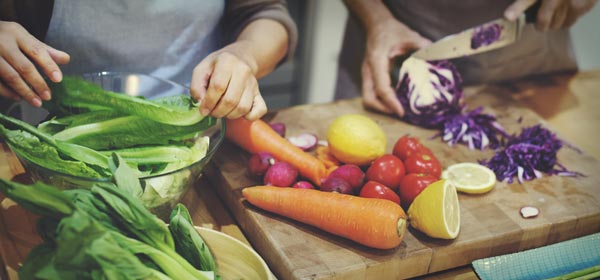It goes without saying that eating well is vital for everyone at all ages. Your daily food choices have a significant influence on your overall health, as well as how you look and feel. As you get older, eating a variety of healthy foods is vital for you in order to maintain optimum wellbeing. Here is a brief look at some foods that have different effects on those who have been eating them for longer than others.
Beans
Beans are an excellent source of fibre, rich in protein and iron, as well as being low in fat. If you’ve banished beans from your diet because of issues with bloating, you may want to add them back into your diet slowly – just a few small serves a week is all it takes to benefit from beans.
Grapefruit
If you take medicine for high blood pressure, anxiety, or insomnia, you may need to avoid grapefruit. Still, vitamin C and potassium are important, so try other citrus fruits such as oranges and limes to get your fix.
Raw vegetables
If you have issues with your teeth, then you may wish to avoid raw vegetables. Try cooking vegetables until they are a little softer, or use pureed vegetables in soups and stews. Even canned vegetables are not that bad either, as long as you choose those with no added salt.
Alcohol
Alcohol has a different effect on your body as you get older. A drink here and there may be fine, but drinking more can decrease your quality of sleep, increase blood pressure and affect the way your medicines work. Alcohol can also cause hypoglycaemia for those with diabetes.
Dairy
You may have a bit more trouble digesting milk or dairy products as you age, but giving them up can mean you lose a valuable source of calcium and protein. Some dairy products are more easily digested than others – such as non-fat plain yogurt and low-fat cheeses. Or you could try some of the many lactose-free dairy products available.
Meats
Some of the healthier cuts of meat can be difficult to chew. Minced meat and sausage may be easier on the teeth, but their high-fat content makes it a less nutritious choice. Look for low-fat lean ground beef, or try fish, for an even healthier, easy-to-chew source of protein.
High-salt foods
Too much sodium can raise your blood pressure and put you at higher risk for heart attack and stroke. Processed foods, such as frozen foods, snack foods, salad dressings, and lunchmeats are the main offenders in the sodium stakes. Look for sodium-free, low-salt, or no-salt alternatives.
Cruciferous vegetables
Don’t avoid these vegetables just because they give you gas. Broccoli, cabbage, cauliflower, and kale are all high in vitamin C, beta-carotene, fibre, calcium, iron and folate, and they may even reduce your risk of cancer. Try smaller servings with meals a few times a week. Increasing your fluid intake may also help out with bloating.
Fruit
An apple a day may keep the doctor away, but that won’t help you if you have trouble chewing it. Why not try canned fruits with no added sugar or syrup? You can also switch to softer fruits, or try blending your favourites with some non-fat plain yoghurt into a healthy fruit smoothie.
Raw sprouts
Clover, alfalfa, radish and mungbean sprouts are a great source of B vitamins as well as many other nutrients. But raw sprouts can also pose a health threat to older people and anyone with a weakened immune system. So it’s best to cook them thoroughly before eating.
If you take any type of medication, it’s always best to ask your doctor or pharmacist if you should avoid any foods, because some foods can affect how it works.
Related articles:
Nutritional supplements demystified
Improving nutrition in home-cooked meals

